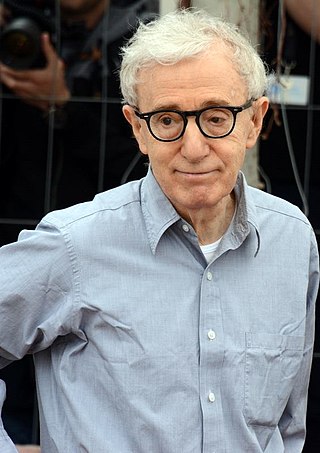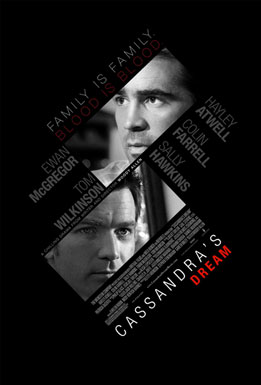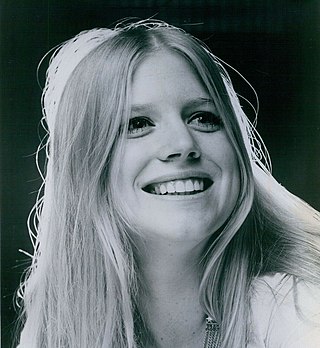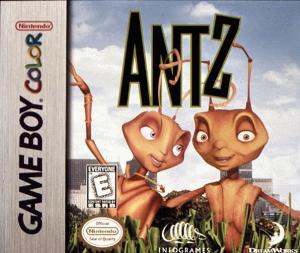
Heywood Allen is an American filmmaker, actor, and comedian whose career spans more than six decades. Allen has received many accolades, including the most nominations (16) for the Academy Award for Best Original Screenplay. He has won four Academy Awards, ten BAFTA Awards, two Golden Globe Awards and a Grammy Award, as well as nominations for a Emmy Award and a Tony Award. Allen was awarded an Honorary Golden Lion in 1995, the BAFTA Fellowship in 1997, an Honorary Palme d'Or in 2002, and the Golden Globe Cecil B. DeMille Award in 2014. Two of his films have been inducted into the National Film Registry by the Library of Congress.
A nocturnal emission, also known as a wet dream, sex dream, or sleep orgasm, is a spontaneous orgasm during sleep that includes ejaculation for a male, or vaginal lubrication and/or an orgasm for a female.
Coitus reservatus, also known as sexual continence, is a form of sexual intercourse in which a male does not attempt to ejaculate within his partner, avoiding the seminal emission. It is distinct from death-grip syndrome, wherein a male has no volition in his emissionless state.

A facial is a sexual activity in which a man ejaculates semen onto the face of one or more sexual partners. A facial is a form of non-penetrative sex, though it is generally performed after some other means of sexual stimulation, such as vaginal sex, anal sex, oral sex, manual sex or masturbation. Facials are regularly portrayed in pornographic films and videos, often as a way to close a scene.

Everything You Always Wanted to Know About Sex* is a book by California psychiatrist David Reuben. It was one of the first sex manuals that entered mainstream culture in the 1960s, and had a profound effect on sex education and in liberalizing attitudes towards sex. It was "among the top 20 all-time best sellers of the 20th century in the United States".
A fake orgasm occurs when a person pretends to have an orgasm without actually experiencing one. It usually involves simulating or acting out behaviors typically associated with orgasm, such as body movements, vocal sounds, and sequences of intensification followed by apparent release. It can also include giving verbal indications that orgasm occurred.
Erin Leslie Fleming was a Canadian actress, best known as the companion and manager of comedian Groucho Marx during his final years.

Lou Jacobi was a Canadian character actor. Jacobi came to prominence for his role as Mr. Van Daan in the 1955 Broadway production of The Diary of Anne Frank which he reprised in the 1959 film version. He also acted in the films Irma la Douce (1963), Little Murders (1971), Everything You Always Wanted to Know About Sex* (1972), Next Stop, Greenwich Village (1976), The Lucky Star (1980), Arthur (1981), My Favorite Year (1982), and Avalon (1990).
"Let's Misbehave" is a song written by Cole Porter in 1927, originally intended for the female lead of his first major musical production, Paris. It was discarded before the Broadway opening in favor of "Let's Do It, Let's Fall in Love". However, the star of the Broadway production, Irene Bordoni, performed it for a phonograph recording which was labelled as being from the production of Paris.
Ref Sanchez was an American actor who appeared mostly in television shows in smaller acting parts. He worked as a fashion photographer in the 1950s through the 1970s.

Cassandra's Dream is a 2007 crime thriller drama film written and directed by Woody Allen. Shot in England, the film is a co-production between the United States, France, and the United Kingdom.

Jay Robinson was an American actor specializing in character roles. He achieved his greatest fame playing Emperor Caligula in the film The Robe (1953) and its sequel Demetrius and the Gladiators (1954), and years later portraying the boss of the character played by Warren Beatty in Shampoo (1975).

David R. Reuben is a psychiatrist, and author. He is most famous for his book Everything You Always Wanted to Know About Sex* .

Everything You Always Wanted to Know About R. Stevie Moore But Were Afraid to Ask is the third official album by R. Stevie Moore, a double album compilation issued on vinyl in 1984 by New Rose Records of Paris, France. It was the first of four New Rose RSM albums to be released through the 1980s.

Heather MacRae is an American actress known for her role in the Woody Allen 1972 comedy Everything You Always Wanted to Know About Sex* .

Antz is a video game developed by French studio Planet Interactive and released in 1999 by Infogrames for the Game Boy Color. It is based on the film with the same name.
Titos Vandis was a Greek actor.
John Leonard Strauss was an American television and film composer and music editor. Strauss co-wrote the theme song for the NBC television series, Car 54, Where Are You?, with Nat Hiken. He also won a Grammy Award for his work as the producer of the soundtrack for the 1984 film, Amadeus. He also frequently collaborated with director Woody Allen in his films, including Take the Money and Run in 1969 and Everything You Always Wanted to Know About Sex* in 1972.
David Martin Walsh is an American cinematographer. He worked with film directors including Woody Allen, Herbert Ross, and Arthur Hiller.
Everything You Always Wanted to Know About Sex* may refer to:









